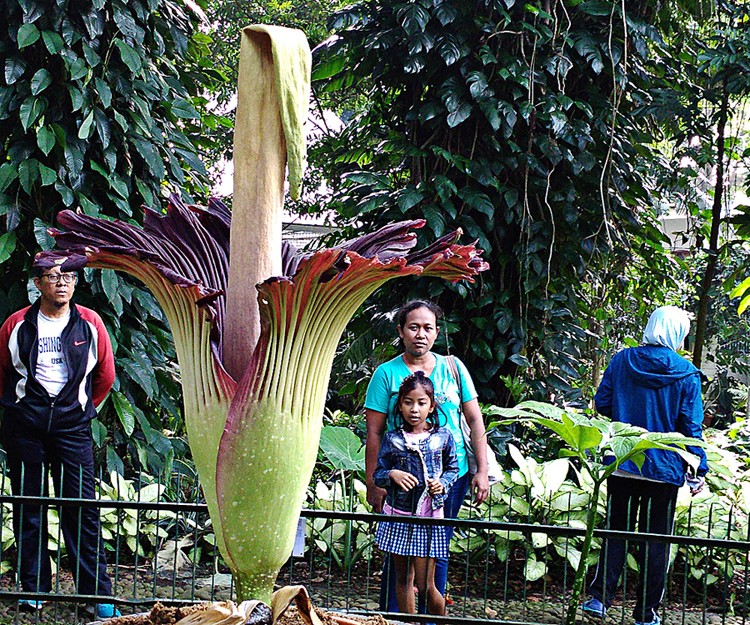Popular Reads
Top Results
Can't find what you're looking for?
View all search resultsPopular Reads
Top Results
Can't find what you're looking for?
View all search resultsCorpse flower blooms in sealed Cibodas Botanical Park
Amidst the COVID-19 pandemic around the globe, the Cibodas Botanical Park in Cianjur regency, West Java announced good news about the blooming of a stinking corpse lily.
Change text size
Gift Premium Articles
to Anyone
A rare corpse flower, the Amorphophallus titanium, has started blooming at the Cibodas Botanical Park in Cianjur regency, West Java while the park is closed over the growing concerns of the COVID-19 pandemic.
One of Cibodas Botanical Park’s researchers for the tall titan arum flower, Destri, explained that the flower bloomed on Thursday night to a height of 291 centimeters and a diameter of 119 cm.
The flower at the park came from Kerinci Sebelat National Park in West Sumatra, germinated from a seed in 2000.
The flower has a yellow spadix and a little bit of purple on some of its parts, as well as a red spatha.
The Amorphophallus titanum is a member of the Araceae genus. It is also called a stinking corpse flower because it exudes a rotten smell that can be detected 100 meters away when it blooms.
There are 13 specimens of corpse flower grown in Cibodas Botanical Park. The first one bloomed in March 2004 and was 3.17 m in height.
Destri also explained that the stinky tall flower is a rare plant based on a classification from the International Union for Conservation of Nature (IUCN). In Indonesia, the flower is protected by Government Regulation No. 7/1999 on flora and fauna and classified as an endemic plant.
Unfortunately, this flower is not available for public viewing since the Indonesian Institute of Sciences has closed four botanical gardens under its management in Cibodas, Bogor, Purwodadi in East Java and Eka Karya in Bali from March 19 to 31 to prevent COVID-19 from spreading. (dpk)










